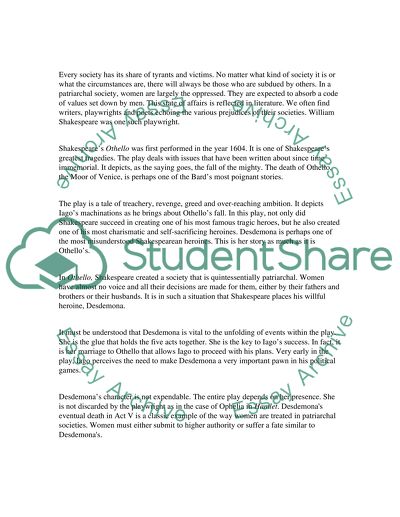Cite this document
(“Desdemona a Moral Heroine or a Victim of the Violent Repression of W Essay”, n.d.)
Desdemona a Moral Heroine or a Victim of the Violent Repression of W Essay. Retrieved from https://studentshare.org/literature/1511806-desdemona
Desdemona a Moral Heroine or a Victim of the Violent Repression of W Essay. Retrieved from https://studentshare.org/literature/1511806-desdemona
(Desdemona a Moral Heroine or a Victim of the Violent Repression of W Essay)
Desdemona a Moral Heroine or a Victim of the Violent Repression of W Essay. https://studentshare.org/literature/1511806-desdemona.
Desdemona a Moral Heroine or a Victim of the Violent Repression of W Essay. https://studentshare.org/literature/1511806-desdemona.
“Desdemona a Moral Heroine or a Victim of the Violent Repression of W Essay”, n.d. https://studentshare.org/literature/1511806-desdemona.


